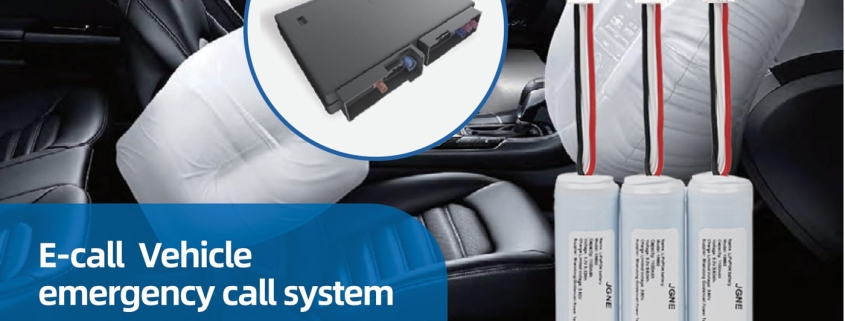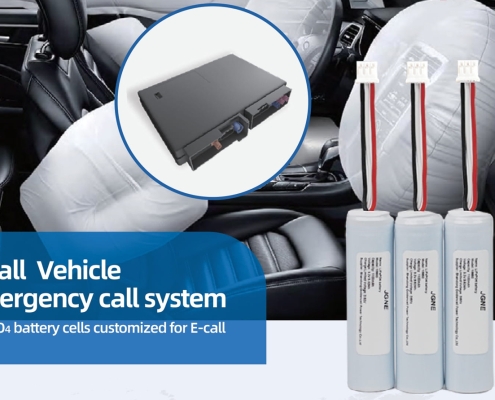T-box Batteries: The Power Behind Effective IoT Communication
The rapidly evolving landscape of the Internet of Things (IoT) demands reliable and efficient power solutions to ensure seamless data communication. T-box batteries play a pivotal role in powering IoT devices, enabling uninterrupted connectivity and optimized performance. Additionally, Lithium Iron Phosphate (LFP) batteries, sourced from trusted LFP battery suppliers,are increasingly becoming a critical component in the IoT ecosystem due to their exceptional durability, long lifespan, and high safety standards. These batteries are engineered to meet the unique requirements of IoT applications, offering longevity and adaptability to diverse environments. Combined with the benefits of T-box batteries, LFP batteries help ensure that IoT systems remain operational in even the most demanding conditions, driving innovation and operational excellence.
Table of contents:
What is a T-box Battery and How Does it Support IoT Systems?
How T-box Batteries Improve Data Transmission and Device Longevity
Key Considerations When Choosing T-box Batteries for Your IoT Projects
What is a T-box Battery and How Does it Support IoT Systems?
The integration of IoT systems in industries has revolutionized communication, data management, and decision-making. At the core of this innovation lies a crucial yet often overlooked component—the T-box battery. This specialized energy source ensures the smooth operation of IoT systems by providing efficient and reliable power. T-box batteries are essential for telematics systems, which enable data transmission and connectivity between devices in IoT frameworks. Utilizing advanced technologies like lithium iron phosphate (LiFePO4) cells, T-box batteries offer superior performance, long cycle life, and unmatched safety. They are designed to function seamlessly in eCall systems, where high reliability and quick responsiveness are imperative during critical moments, such as road incidents or emergencies. These batteries also boast excellent high-temperature performance and a low self-discharge rate, ensuring effective operation in a variety of challenging environments. Their stable chemical composition and advanced safety features prevent risks like fire or explosion, making them ideal for automotive IoT applications. Furthermore, T-box batteries are aligned with certifications like IATF 16949 and VDA 6.3, reflecting their adherence to stringent automotive standards. With sustainable and environmentally friendly technology, these batteries meet the demands of modern enterprises while minimizing their ecological footprint.
How T-box Batteries Improve Data Transmission and Device Longevity
The advantages of T-box batteries extend beyond energy storage. These batteries play a pivotal role in enhancing data transmission and device longevity in IoT systems. Leveraging technologies like LiFePO4 chemistry, T-box batteries deliver dependable power that ensures real-time and uninterrupted connectivity. This creates an ecosystem where IoT networks can exchange large volumes of data efficiently and without delay. High-density energy storage enables T-box batteries to power telematics systems for extended periods, reducing the frequency of maintenance and extending the service life of devices. Additionally, their ability to function in extreme temperature ranges enhances the reliability of IoT frameworks across diverse industries. From fleet management to smart logistics and environmental monitoring, the durability and high-performance capabilities of T-box batteries enable devices to operate continuously, even in complex settings. Their tailored designs also allow for customization based on specific project requirements, ensuring they align perfectly with industry needs. The use of T-box batteries thus guarantees optimized IoT systems that are not only reliable but also cost-effective over time.
Key Considerations When Choosing T-box Batteries for Your IoT Projects
When selecting a T-box battery for your IoT project, several considerations should guide your decision. The composition and technology of the battery are paramount; lithium iron phosphate (LiFePO4) cells are widely recognized for their safety and durability, making them the preferred choice for high-stakes applications like
systems. Certifications such as IATF 16949 and VDA 6.3 should also be prioritized, as they indicate compliance with high-performance and quality standards. The battery’s environmental adaptability is another critical factor—opt for models that offer excellent thermal stability and can perform efficiently across extreme temperature ranges. Energy density and longevity should align with your IoT framework’s operational requirements—to ensure consistent and extended power availability without frequent replacements. Furthermore, partnering with manufacturers who provide customized battery solutions, such as the ability to tailor designs for specific telematics needs, is a strategic move. By focusing on these key aspects, businesses can leverage T-box batteries to create robust and scalable IoT systems, setting the foundation for greater technological advancements.
The integration of reliable T-box batteries is an essential step in building efficient and scalable IoT systems. By prioritizing factors such as longevity, environmental resilience, and compatibility with specific telematics requirements, businesses can ensure seamless operations and reduced maintenance challenges. Furthermore, collaboration with manufacturers to customize battery solutions allows for greater flexibility and innovation within IoT frameworks. Ultimately, investing in high-quality T-box batteries paves the way for enhanced connectivity, improved performance, and the long-term success of IoT-driven initiatives.



